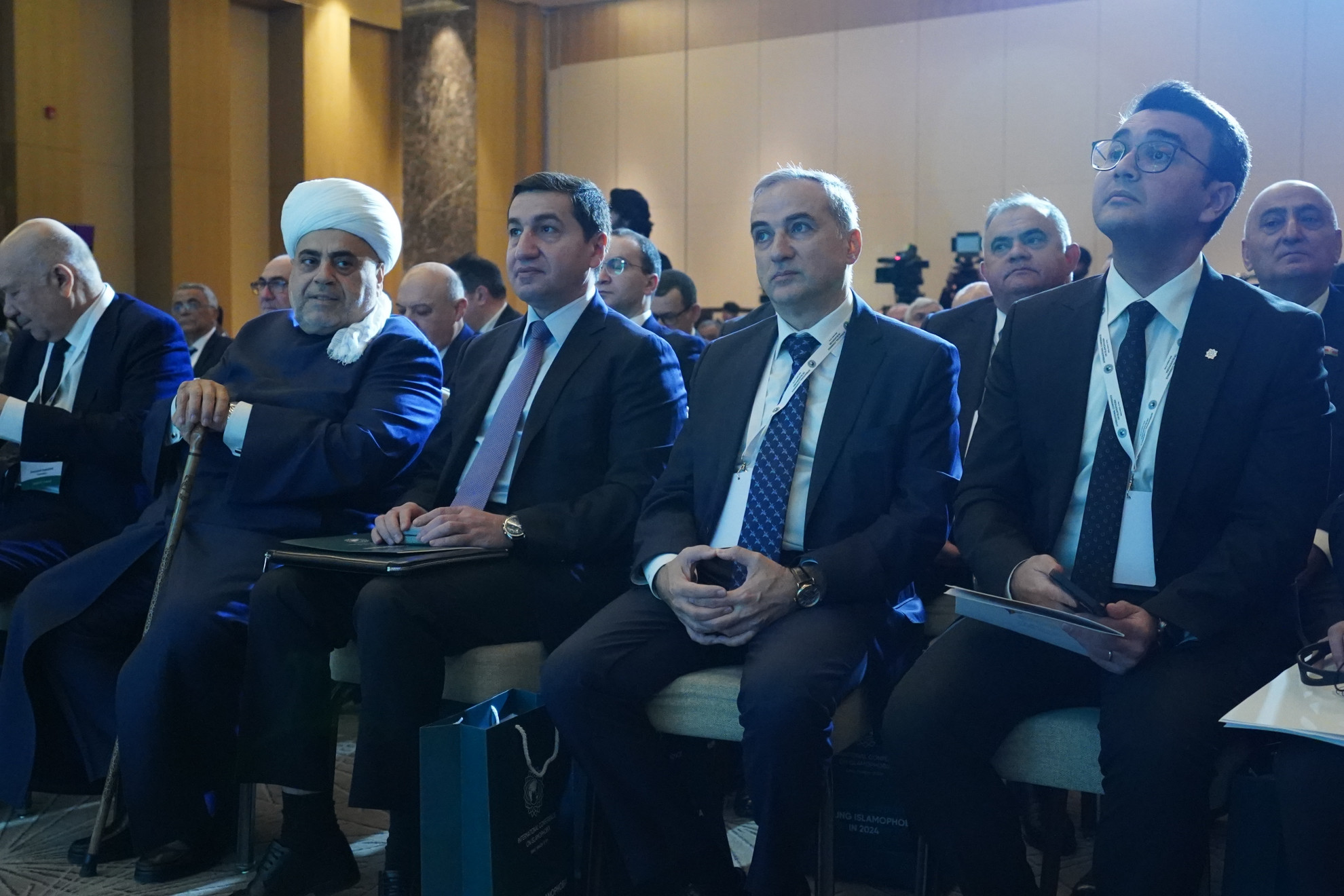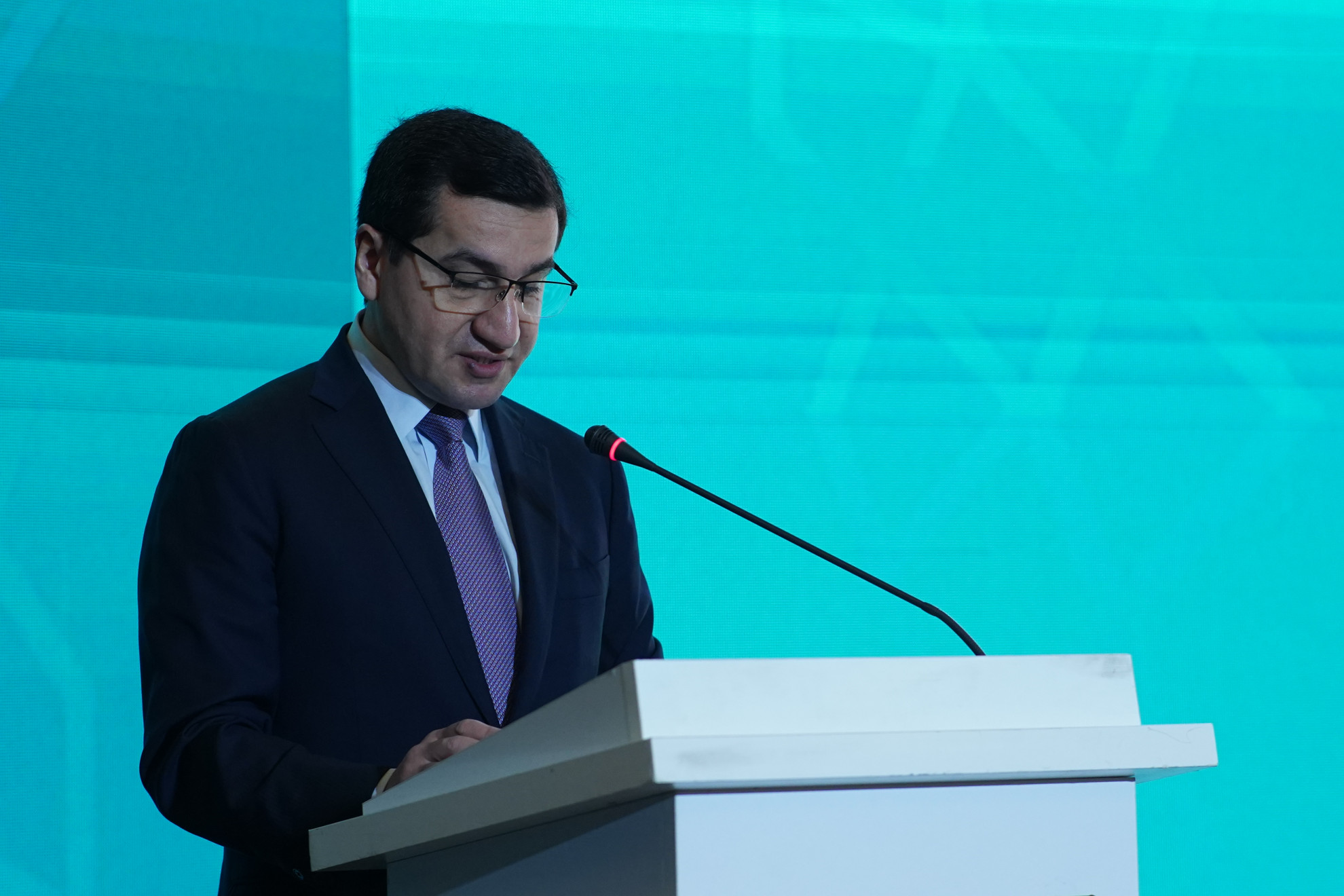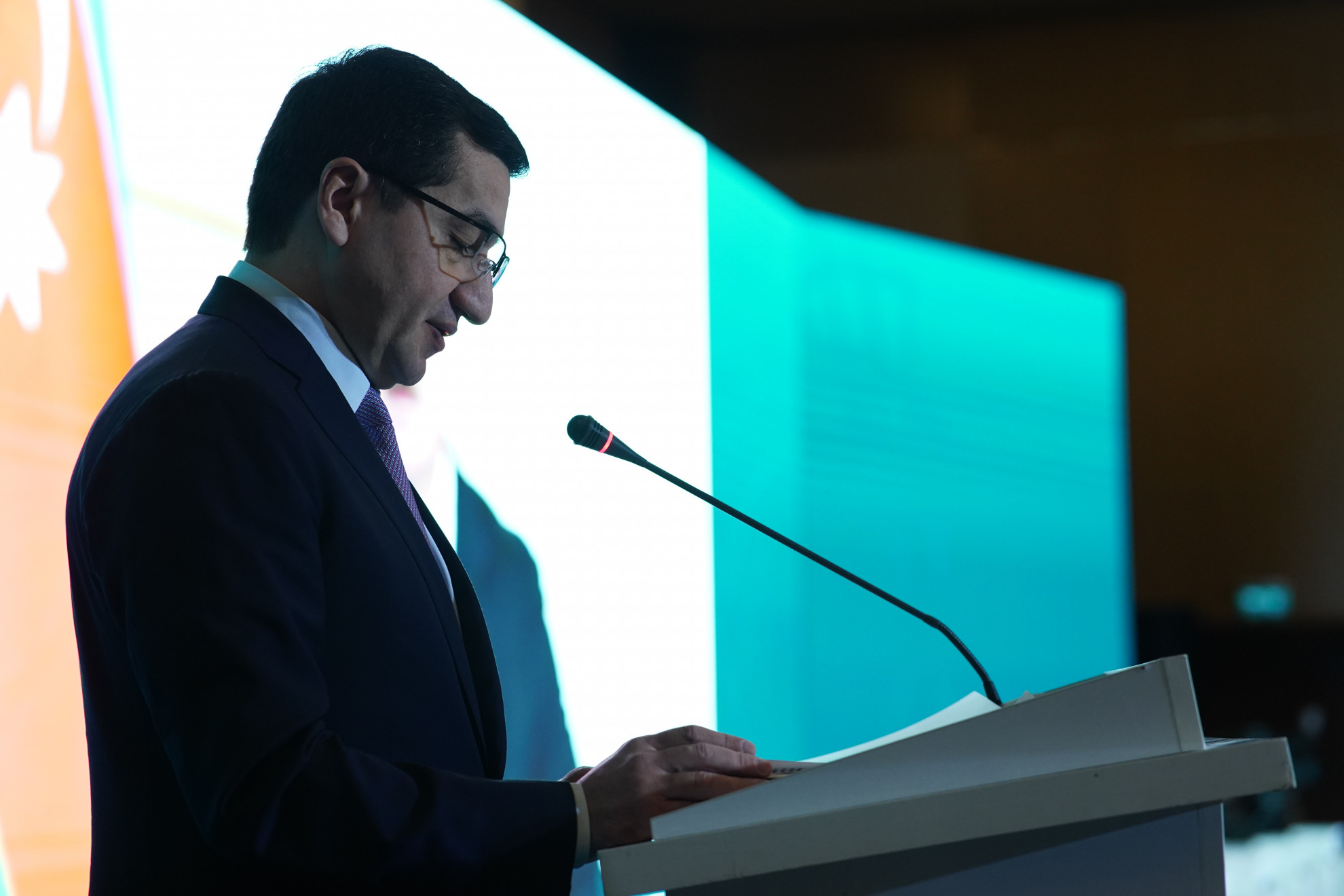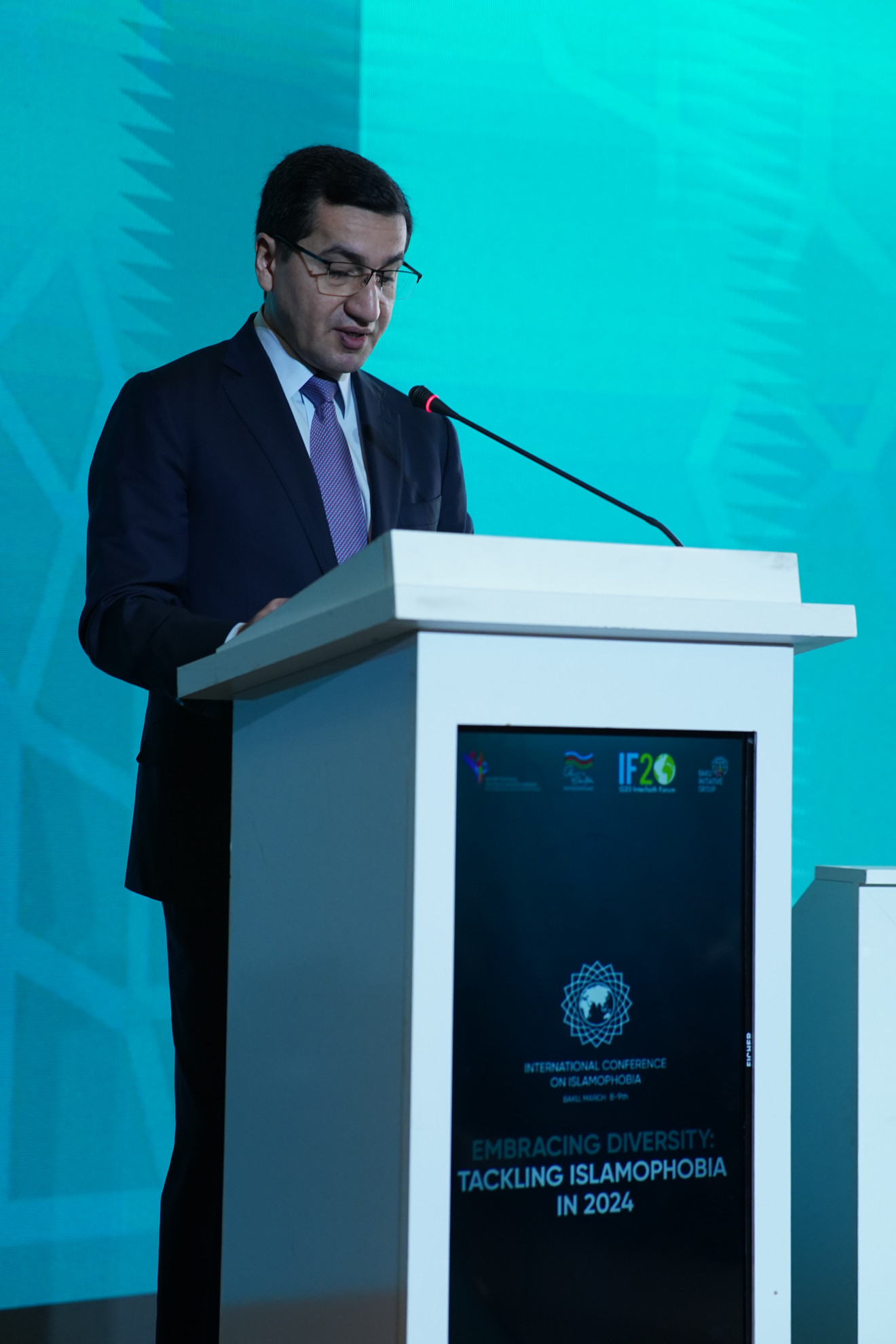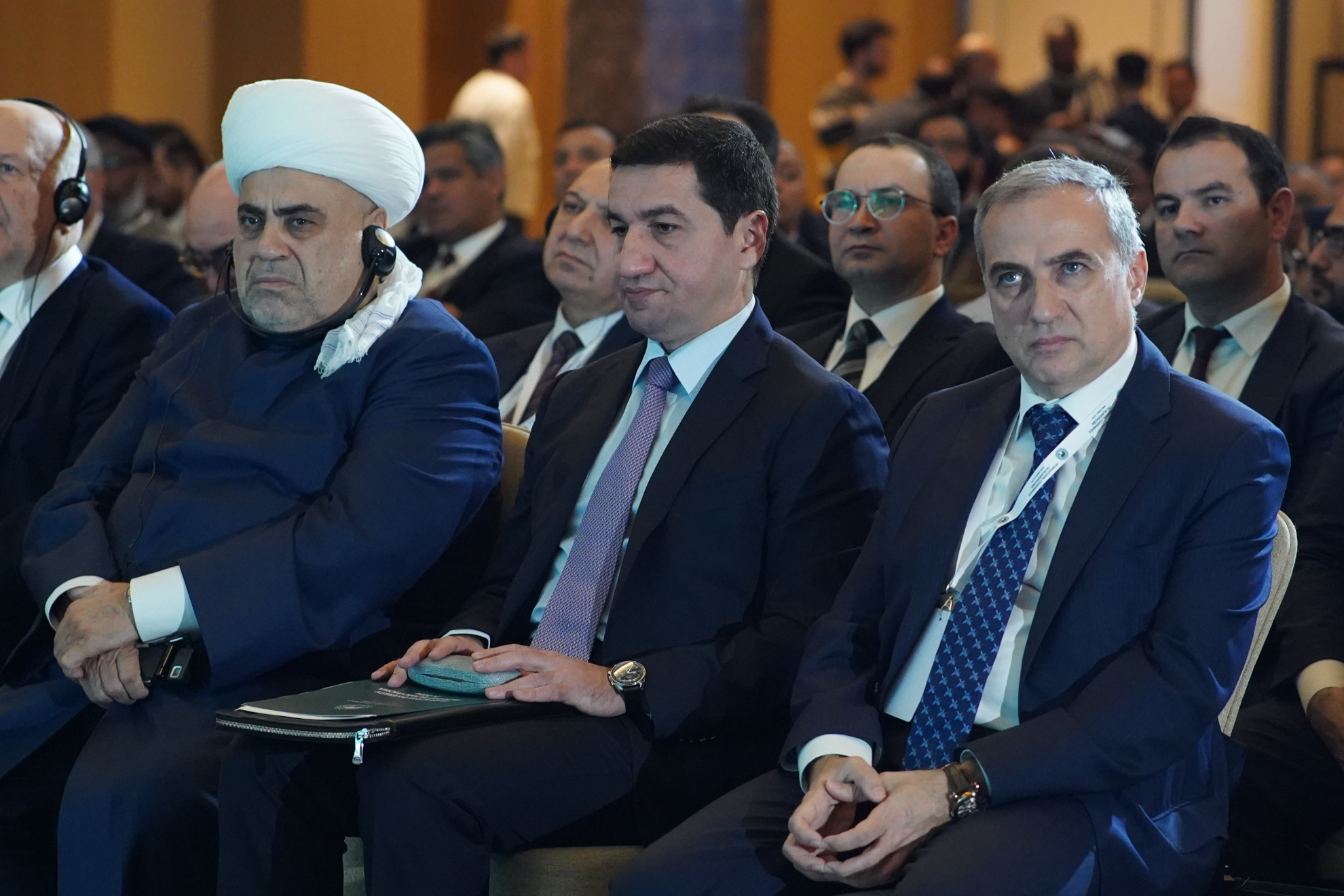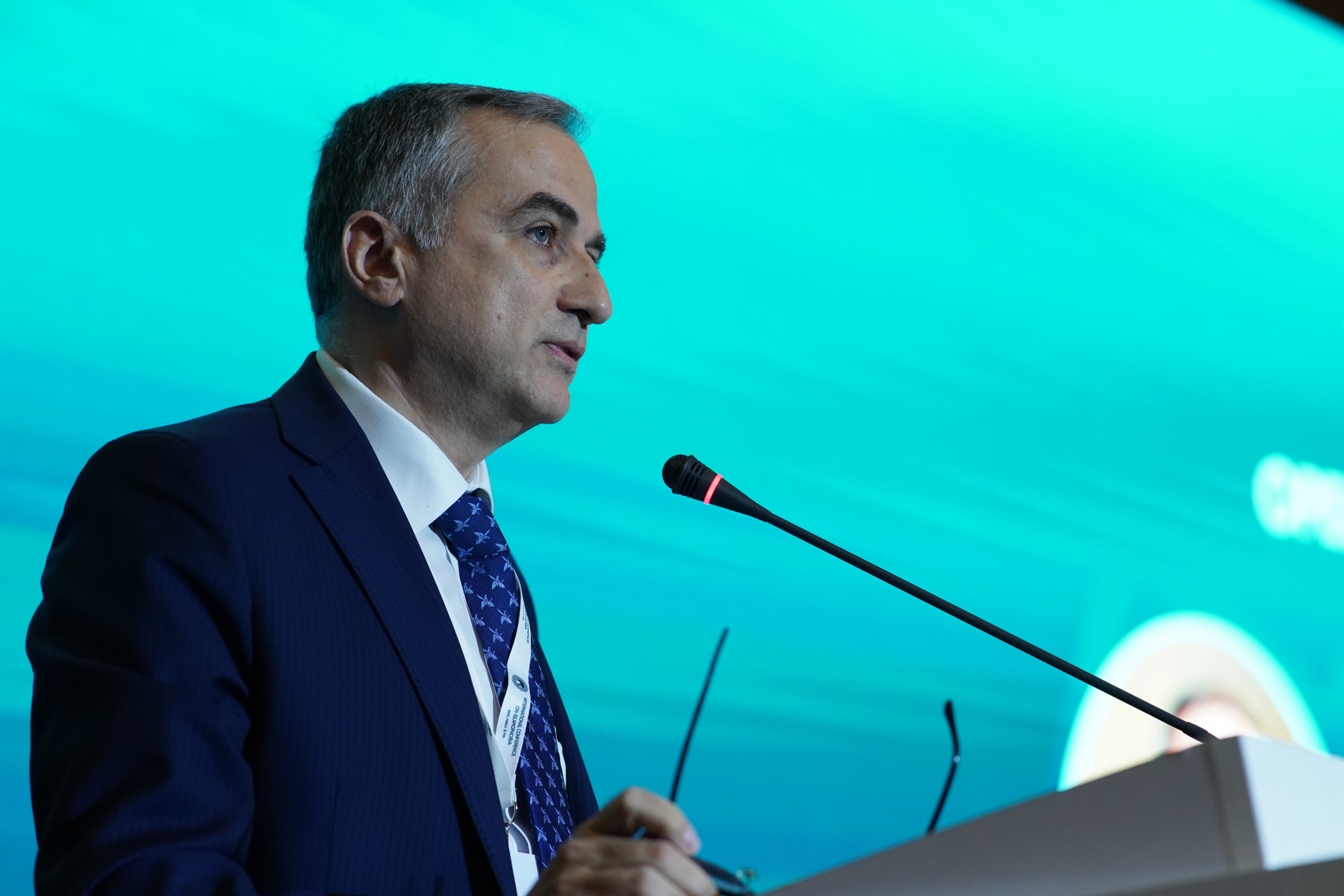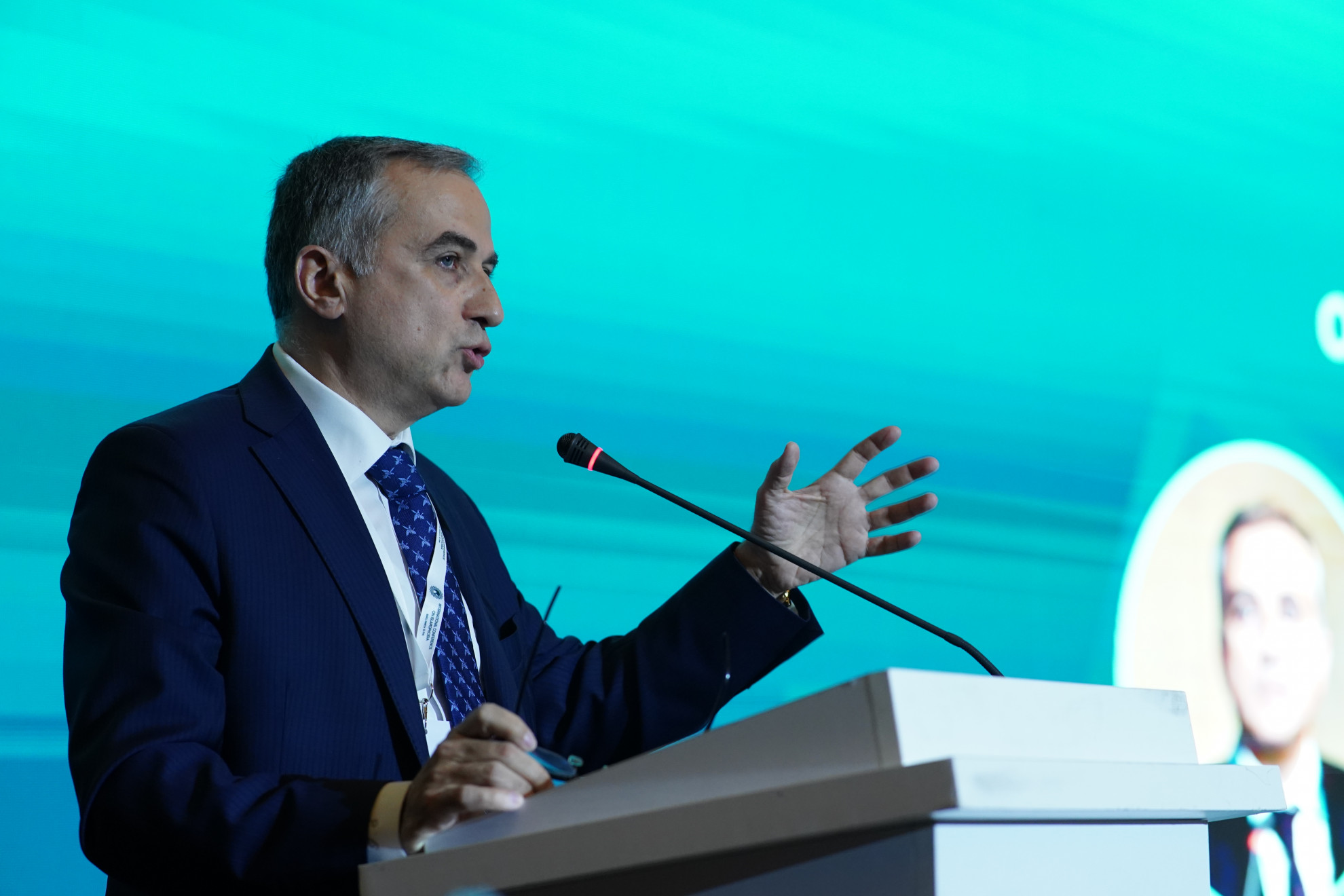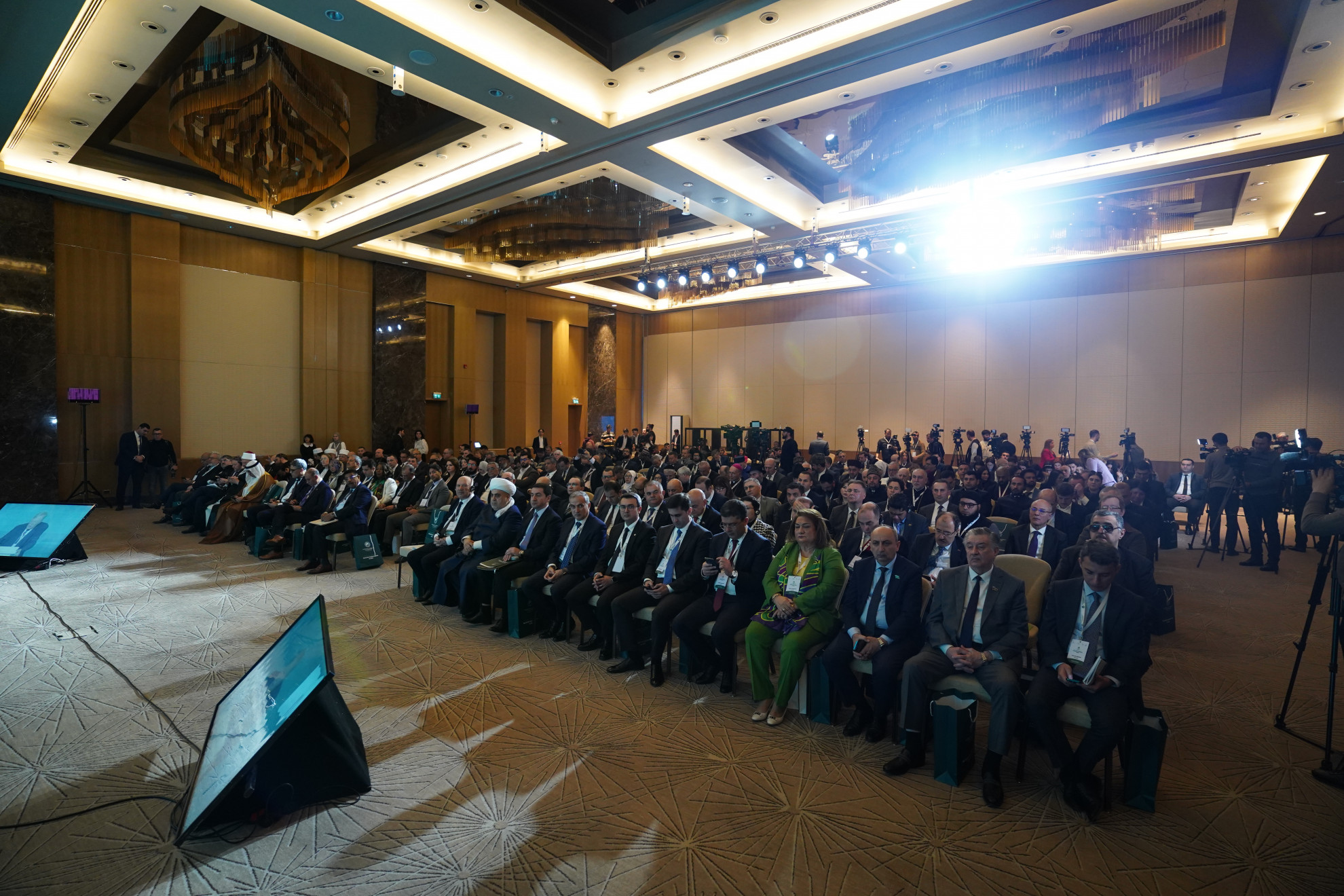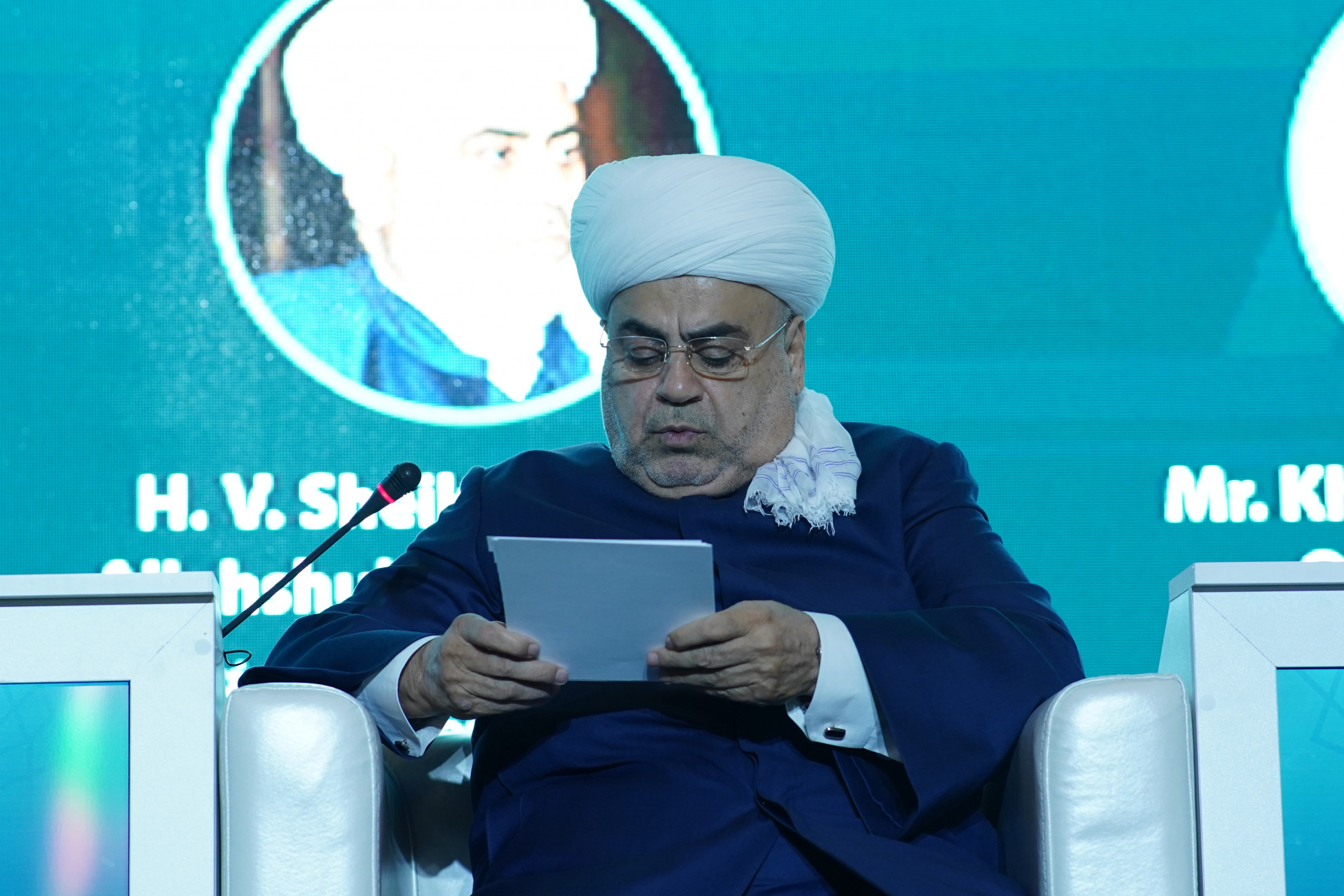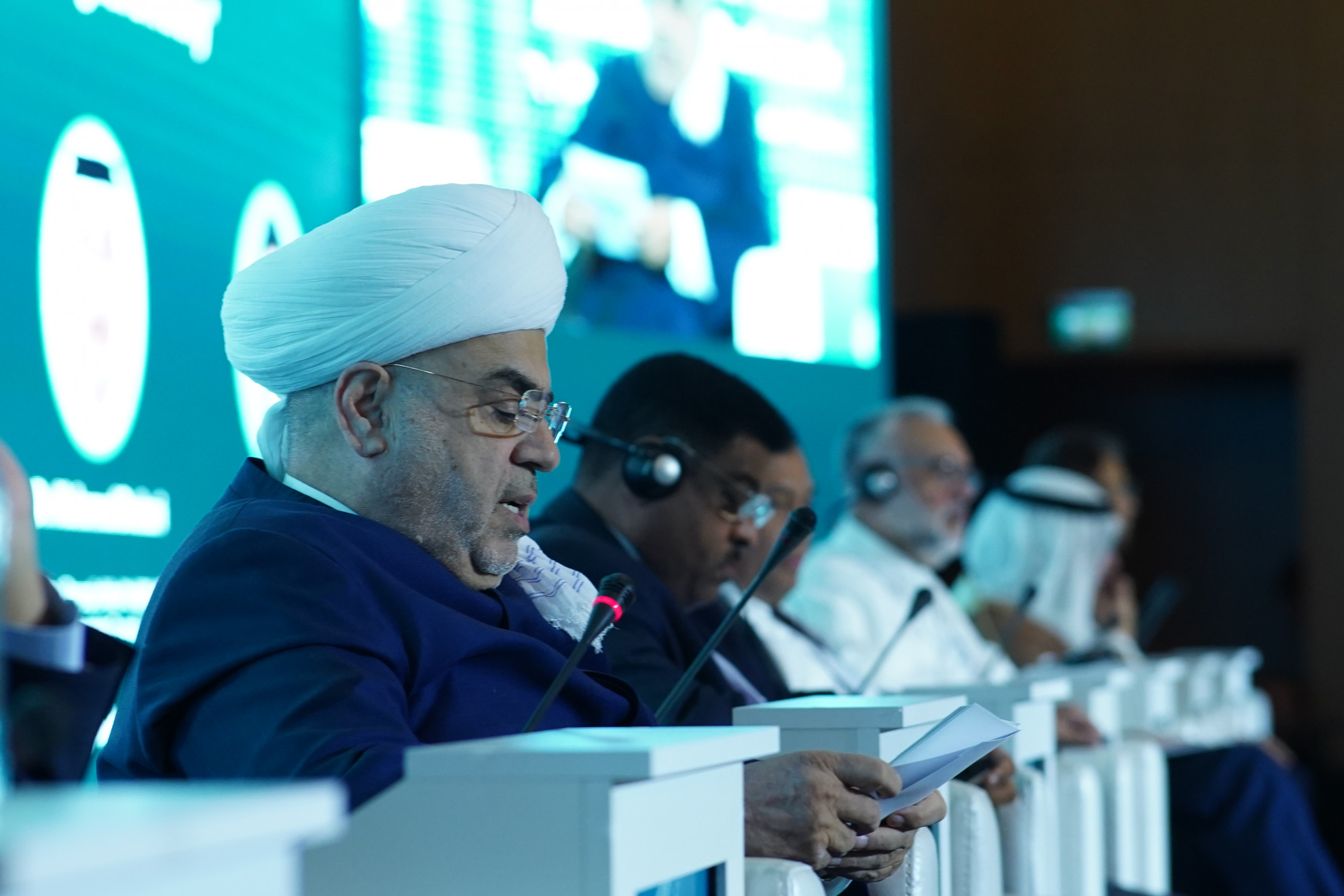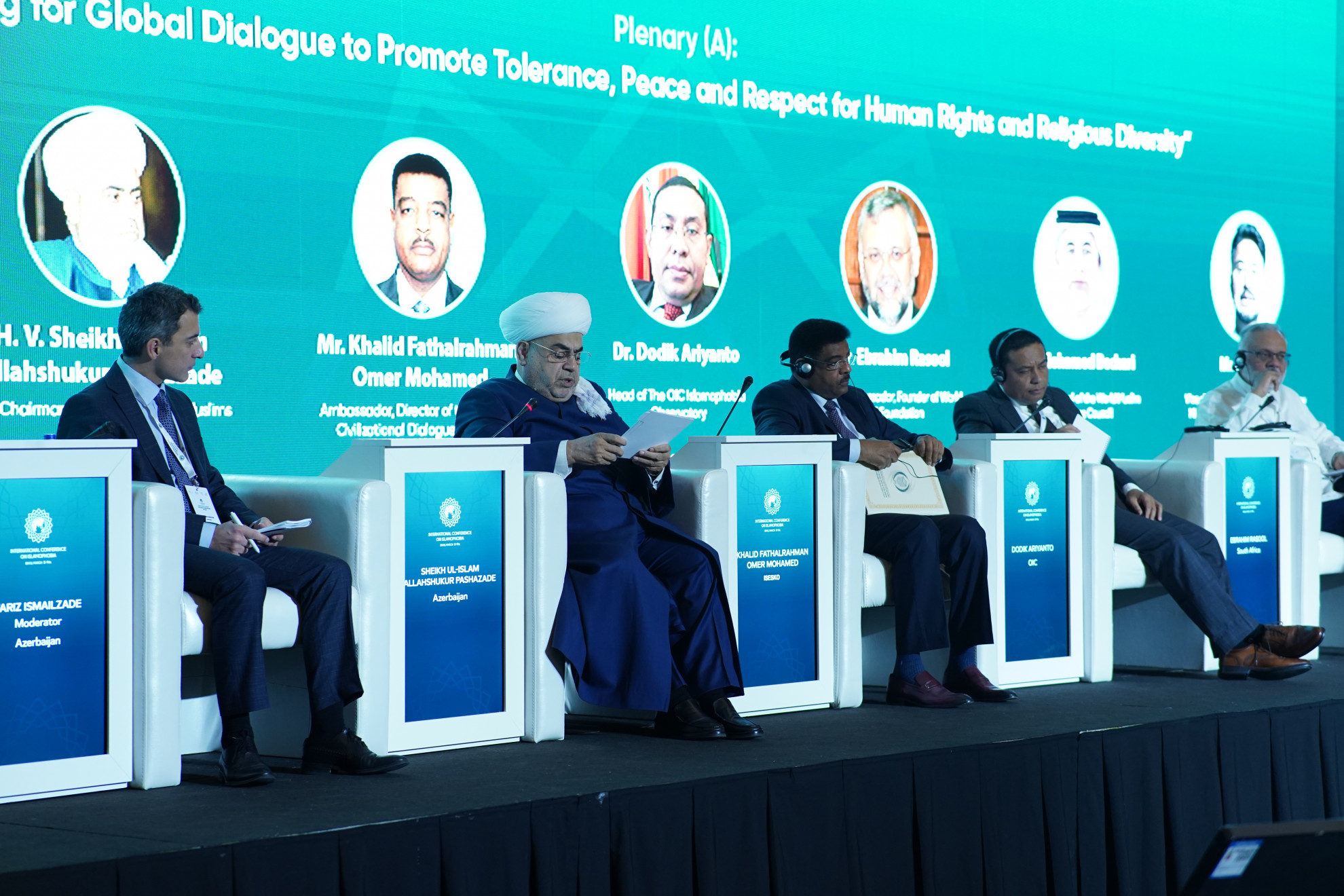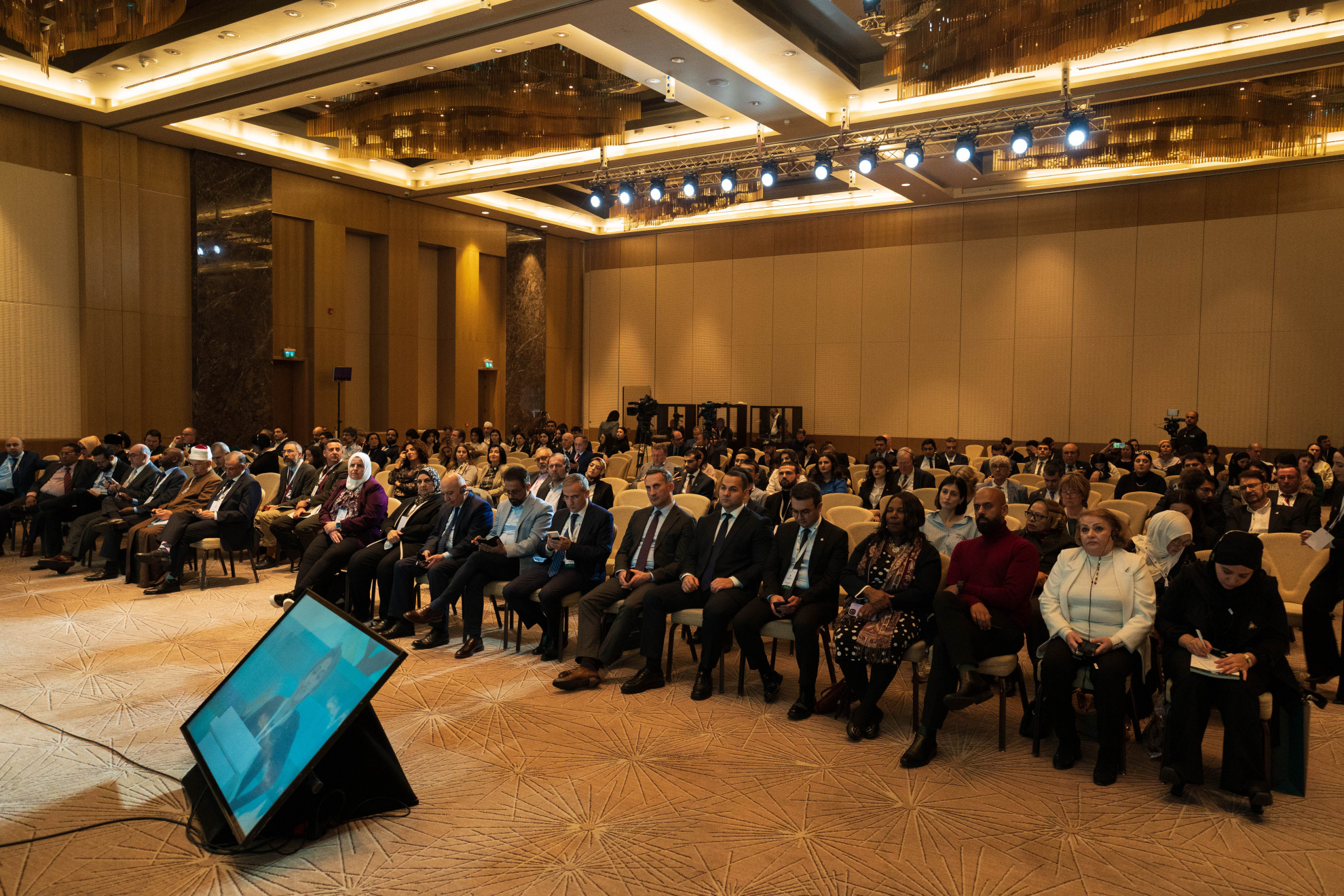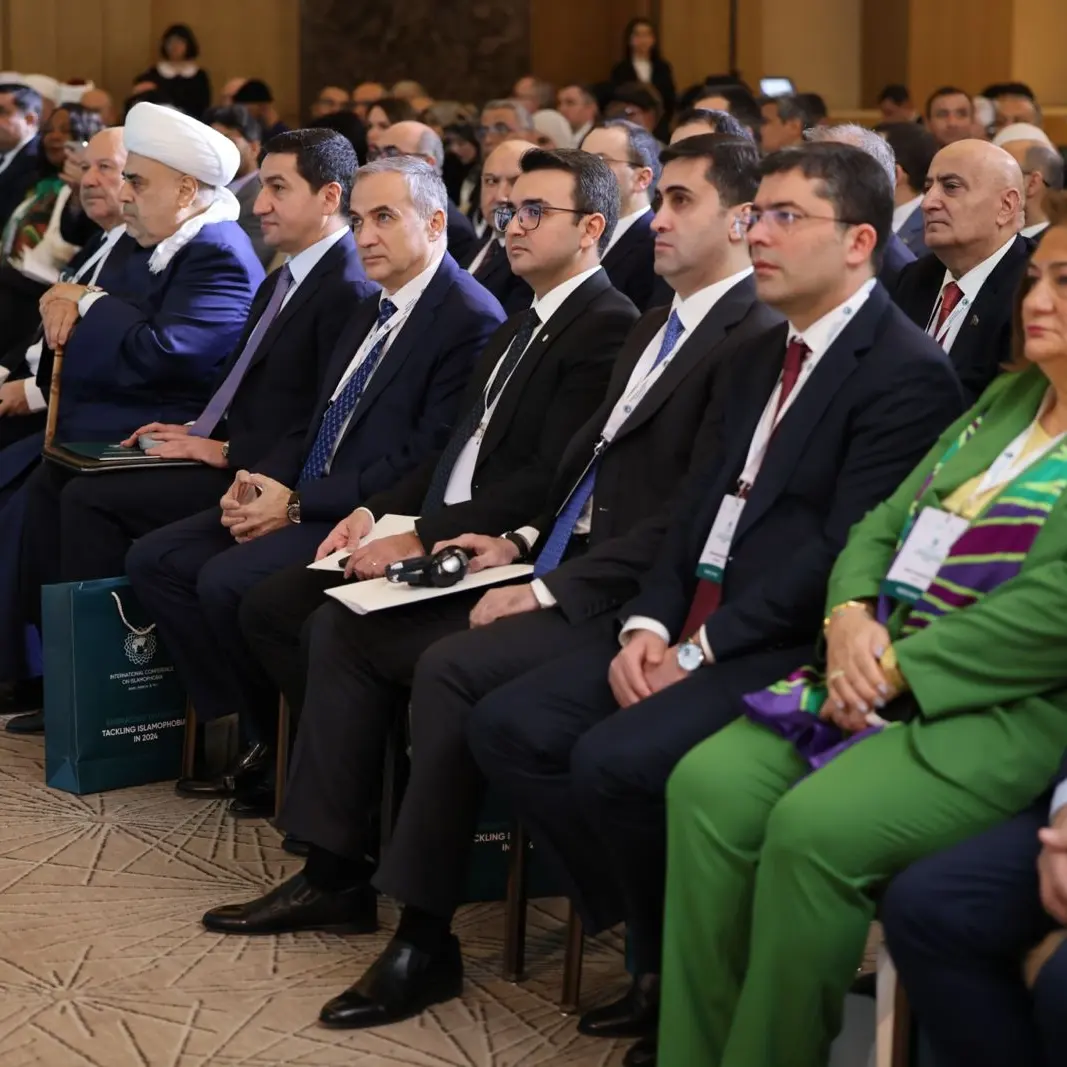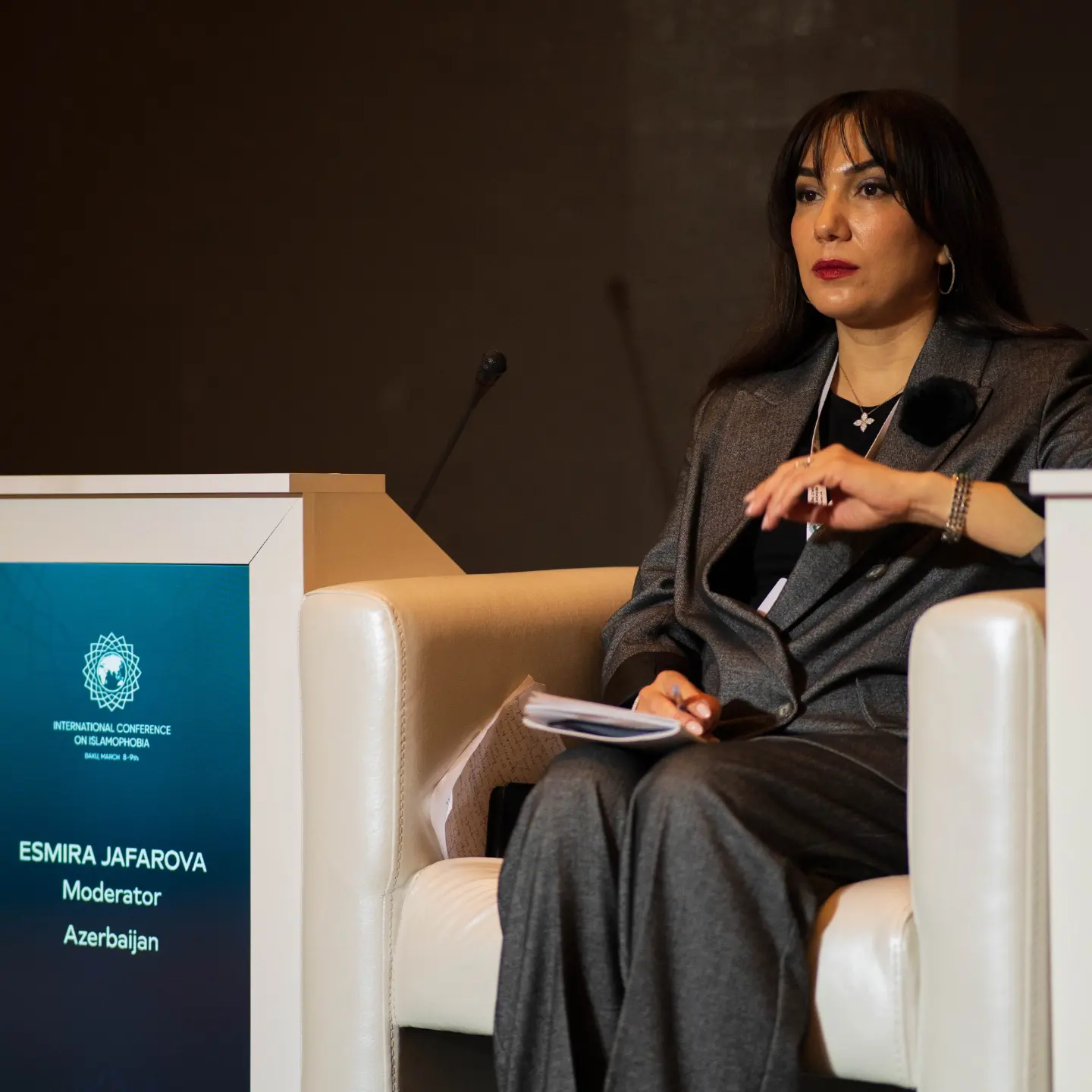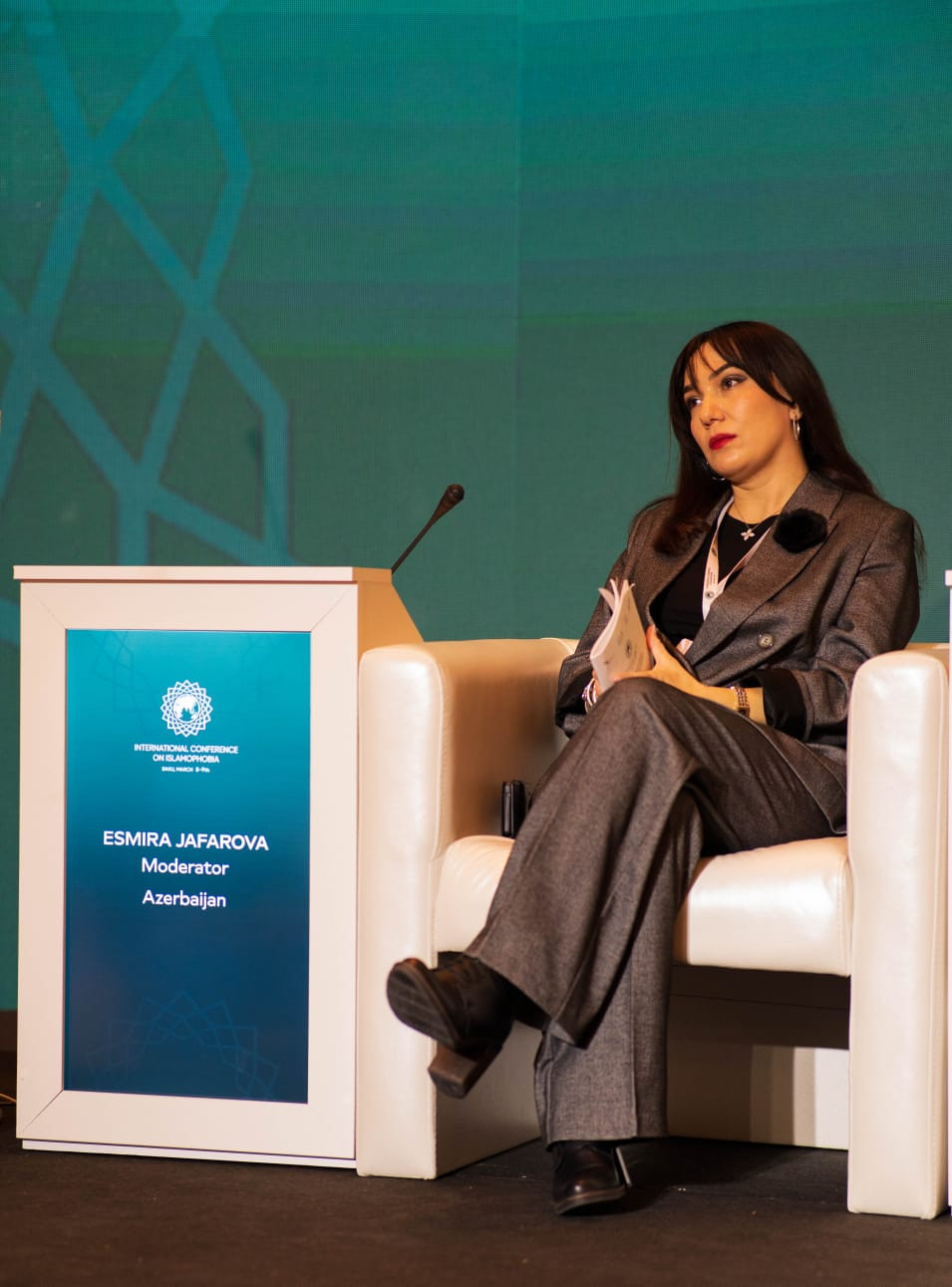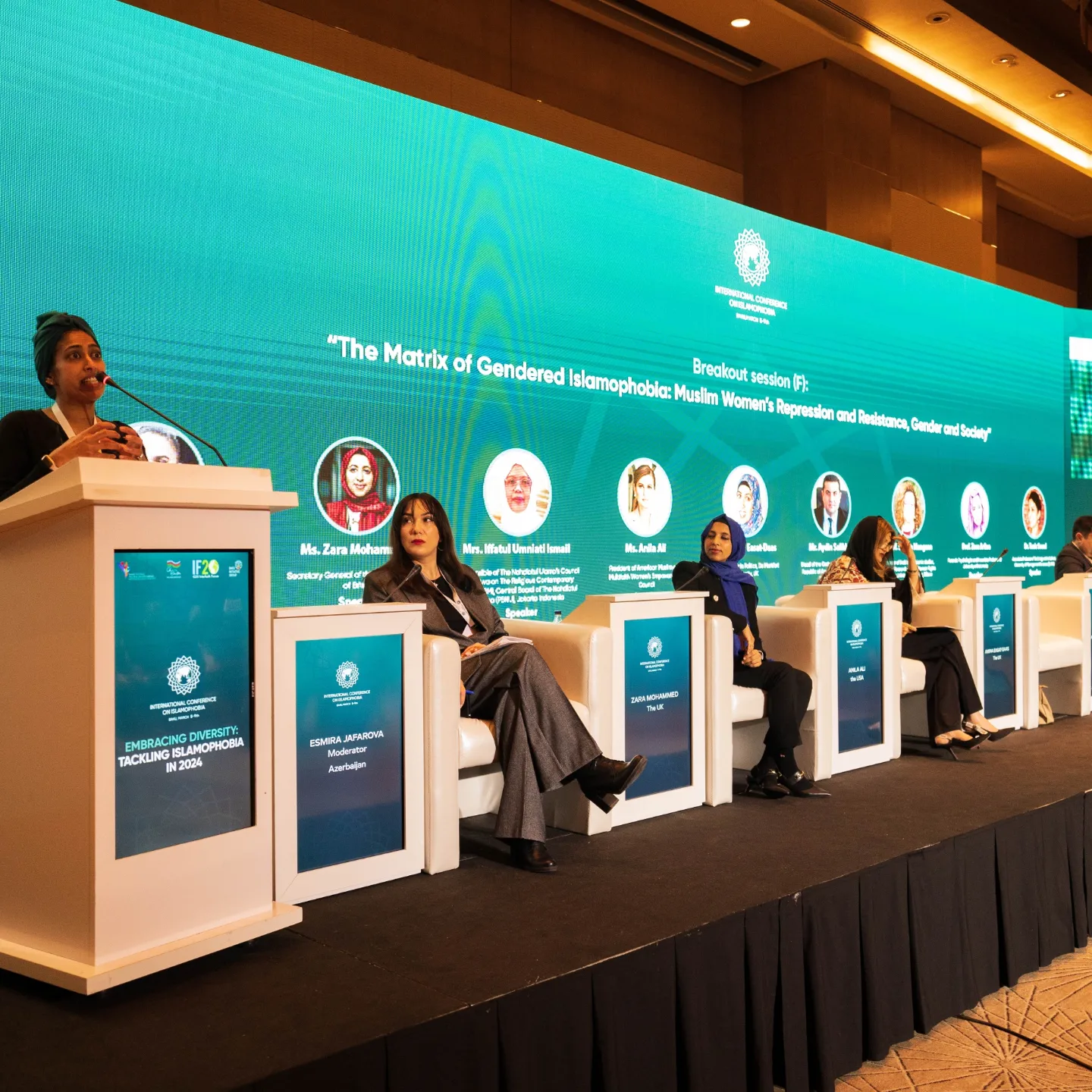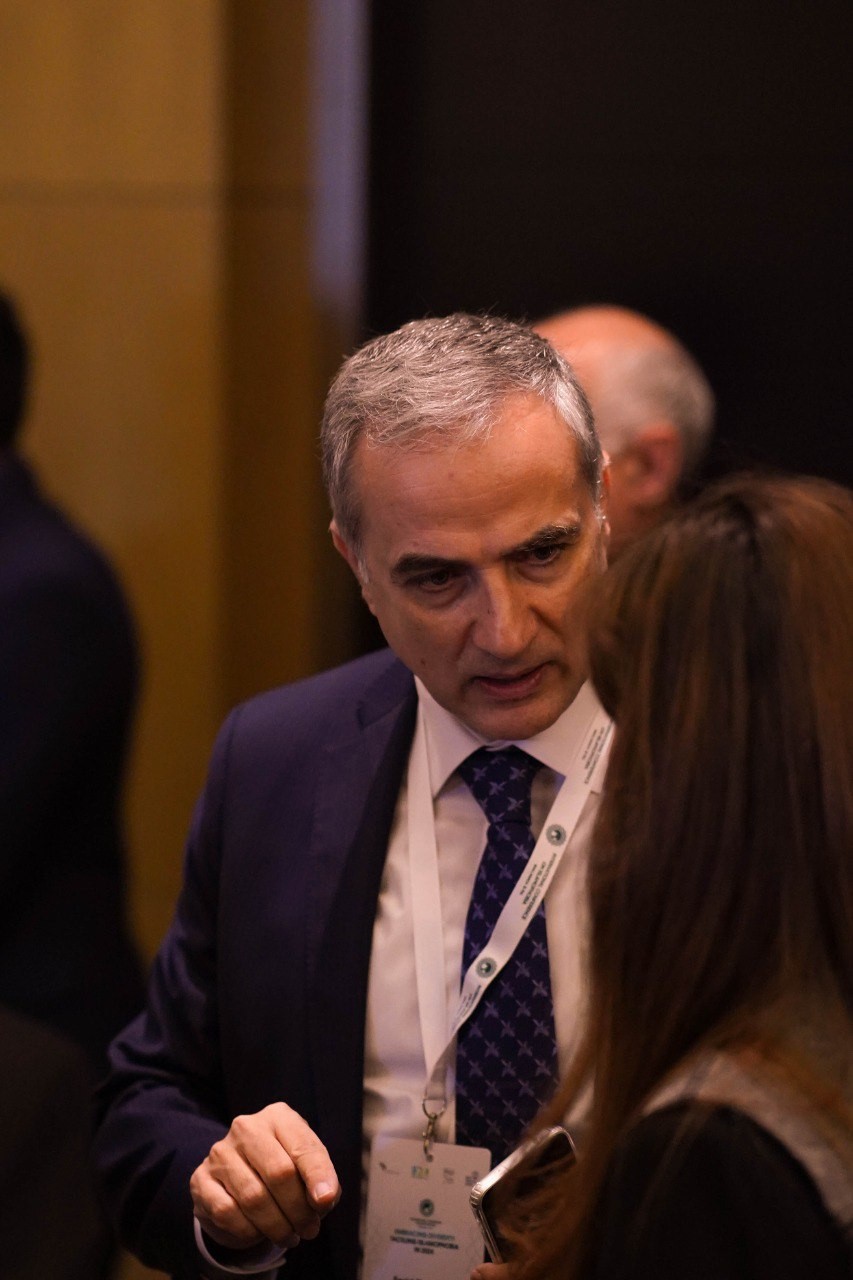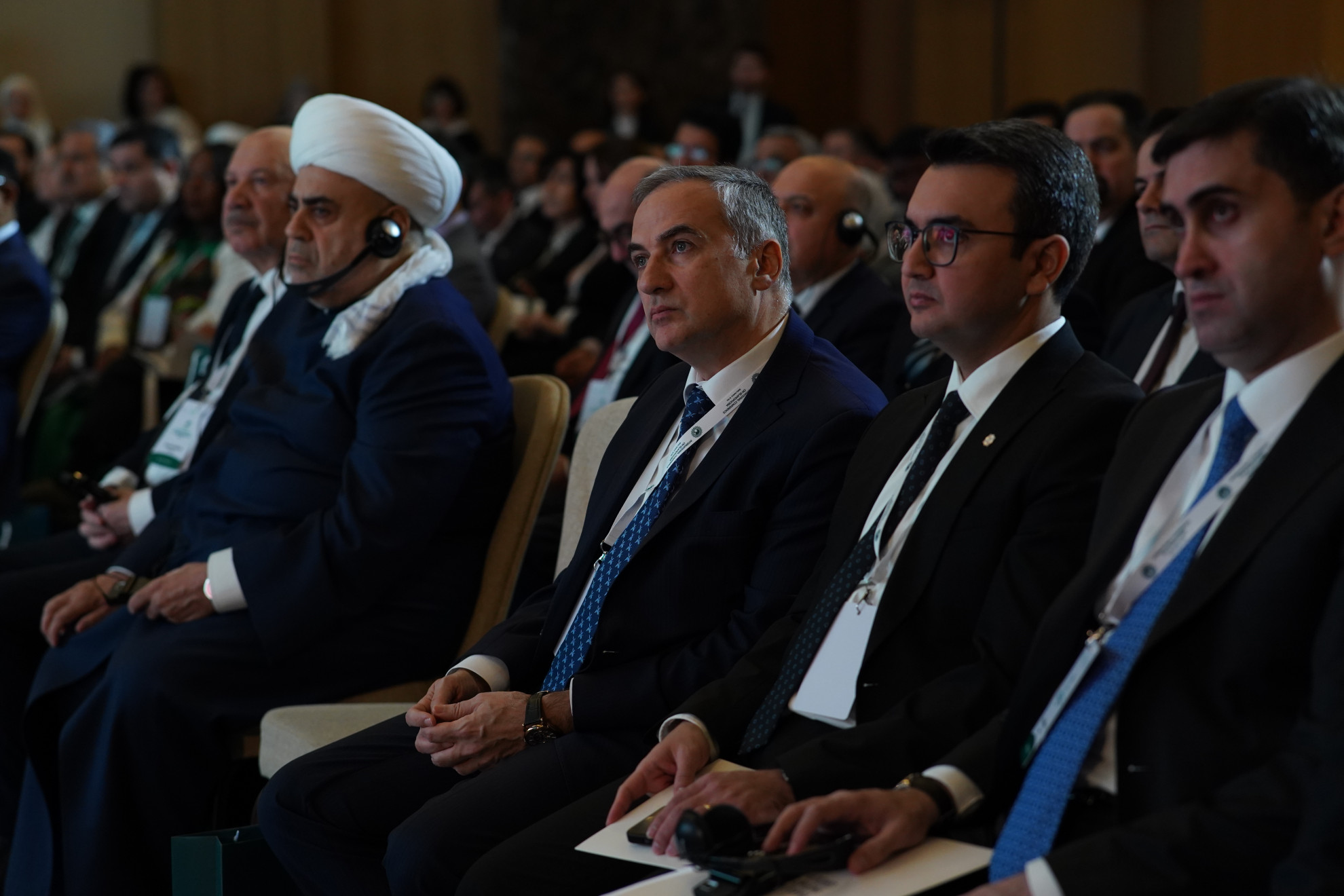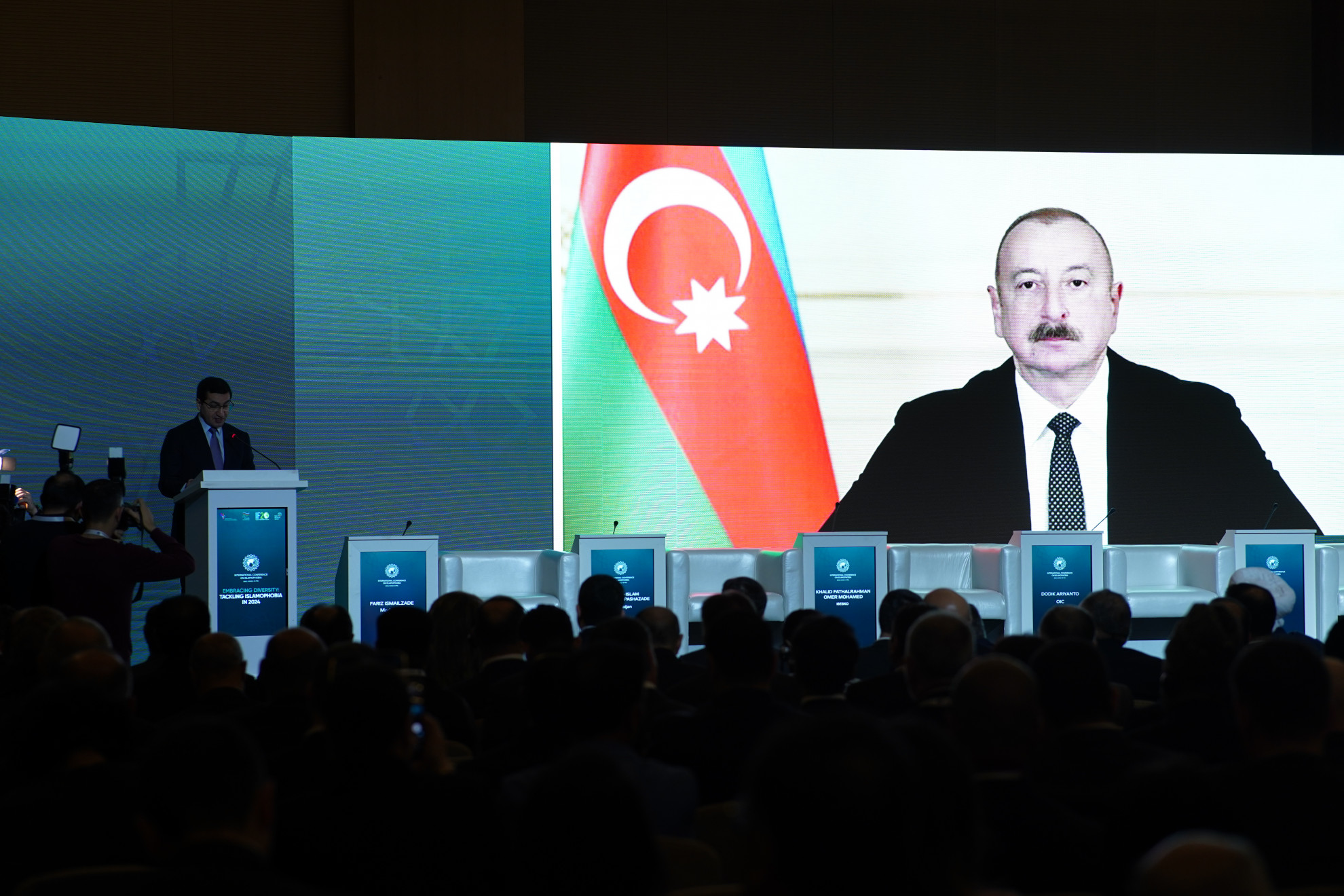On March 8, 2024, an international scientific conference themed “Embracing Diversity: Tackling Islamophobia in 2024” was co-organized by the Baku International Multiculturalism Centre, the Center of Analysis of International Relations (AIR Center), the G20 Interfaith Dialogue Forum, and the Baku Initiative Group.
Assistant to the President of Azerbaijan - Head of Foreign Policy Affairs Department of the Presidential Administration Hikmet Hajiyev read out President of the Republic of Azerbaijan Ilham Aliyev’s address to event participants.
The address drew attention to the increasing cases of Islamophobia in the world and the fact that Azerbaijan has also faced this negative trend.
“Among the dire consequences of Armenia’s 30-year long occupation of our lands was a deliberate destruction and annihilation of our cultural heritage of universal value, including the monuments associated with the Islamic faith. While initial estimates suggested that 65 mosques had been razed to the ground during the occupation, unfortunately, that number is steadily increasing as numerous new examples of Armenian vandalism against Islamic heritage continue to emerge.”
The President also emphasized that respect for multicultural values is one the priority areas of Azerbaijan’s state policy.
“We take pride in Azerbaijan being a multinational and multiconfessional country. Representatives of all religions and ethnic groups live here in peace as one family. Religious equality and inclusivity, safeguarded in our country as an asset, embody the way of life for the Azerbaijani people, serving as a source of strength.”
In his opening remarks, Executive Director of the Baku International Multiculturalism Centre Ravan Hasanov said that the issues to be discussed at the conference can serve as a roadmap. According to him, discrimination, hate speech and isolationist policies are currently among the main problems of the world.
Such cases are prevalent in Western countries.
“Although it is possible to live together peacefully, these negative situations against Muslims continue.”
Chairman of the Board of the Center of Analysis of International Relations Farid Shafiyev said that in order to effectively counter Islamophobia, political steps must be taken at the international level and awareness should be increased among academic circles.
F. Shafiyev drew attention to the spread of biased information by the Western media:
“We see rising discrimination in the media and academia. Whenever Azerbaijan hosts big international events, we are subjected to criticism. The 3-decade-long conflict with Armenia has taught us that, indeed, were facing a well-organized media and academia campaign.”
F. Shafiyev stated that organizing events promoting one-sided narratives and demonstrating selective approaches to cultural monuments in some Western universities, is inadmissible. He also drew attention to the act of vandalism committed against the statue of Azerbaijani poetess and philanthropist Khurshidbanu Natavan, in the city of Évian-les-Bains in France.
"We have witnessed the complete inactivity of the French authorities in this matter. In the country where the headquarters of UNESCO is located. Recently, the statue was brought to the Embassy of Azerbaijan in Paris. I must say that this was not accidental street vandalism. It is the result of the French authorities’ purposeful policy and inaction. Nor did we witness an apology from the French government. Such incidents should be an alarm for many countries and experts."
The video-address by High Representative of the United Nations Alliance of Civilizations Miguel Ángel Moratinos was delivered at the opening ceremony:
“It is deeply regrettable that Muslims around the world are victims of Islamophobia. The spread of Islamophobia in different countries of the world is not hatred against Muslims, but phobia,” said United Nations Under-Secretary-General and High Representative for the United Nations Alliance of Civilizations Miguel Angel Moratinos in his video-address to the event participants.
Noting that hatred against Muslims contradicts human rights principles, Miguel Angel Moratinos emphasized that all people should fight against intolerance to create a just and peaceful world. "All religions in the world are based on compassion and mutual respect. It is our duty to protect it," the UN High Representative added.
Assistant Secretary-General of Political Affairs of the Organization of Islamic Cooperation (OIC) Yousef M. Al-Dobeay said that the designation of March 15 by the United Nations (UN) as the International Day to combat Islamophobia is a significant step in the fight against Islamophobia. “We have a great responsibility in this fight,” he added.
He mentioned that during these years, Azerbaijan has hosted various high-level events dedicated to the fight against Islamophobia, taking exemplary steps. Today’s event also reflects Azerbaijan’s strong commitment in this regard. "The OIC is looking forward to the results of today's conference," he added.
The OIC Assistant Secretary General drew attention to the fact that provocative acts continue to be committed around the world, noting that people are being targeted because of their religious beliefs.
Yousef M. Al-Dobeay stressed the need to take various measures to prevent oppression and discrimination against Muslims. “The OIC calls on international organizations and civil societies to unite and mobilize their efforts against these cases," the Assistant Secretary General emphasized.
The conference featured plenary sessions titled “Calling for Global Dialogue to Promote Tolerance, Peace and Respect for Human Rights and Religious Diversity”, “Similarities and differences in the Treatment of Muslims across Western Europe, Basic Human Tights of the Muslim community”, and breakout sessions: “Anti-Muslim policies in France: Normalizing Islamophobia”, “Confronting Islamophobia in the Context of Higher Education”, “The Matrix of Gendered Islamophobia: Muslim Women’s Repression and Resistance, Gender and Society”.
The two-day conference culminated with the adoption of the Joint Communiqué.
Chairman of the Board of the Center of Analysis of International Relations (AIR Center) Farid Shafiyev read out the document.
At the end of the two-day event held in Baku, a visit of the guests to Shusha, the cultural capital of the Islamic world for 2024, was organized.
To recap, 130 guests from 32 countries, including scientists, experts of international organizations, religious leaders, representatives of non-governmental organizations, as well as local experts and state officials participated in the international conference.
The International Day to Combat Islamophobia is an international observance designated by the United Nations in 2022, taking place on March 15 every year in many countries worldwide.

